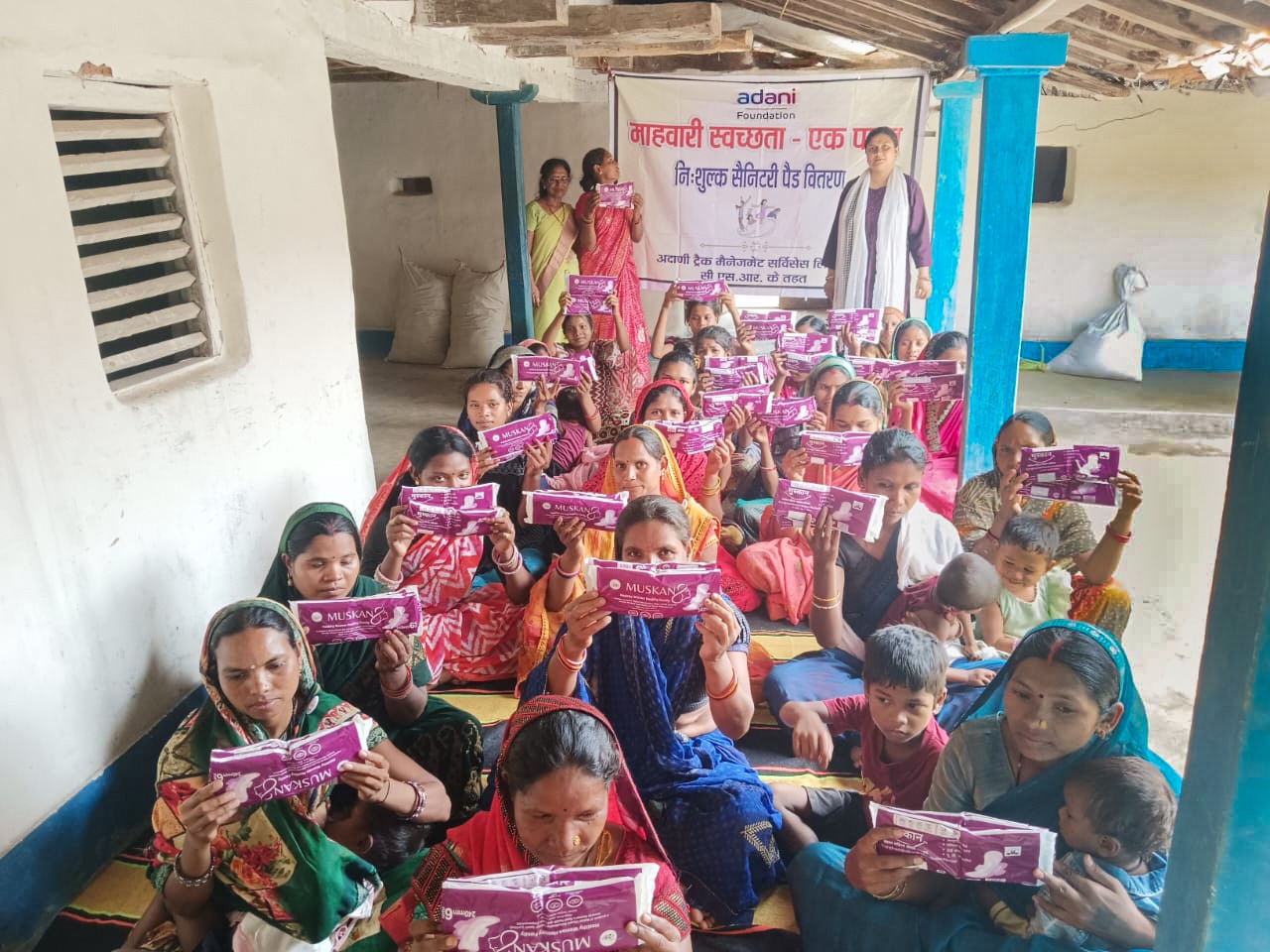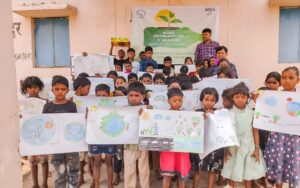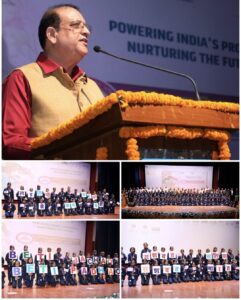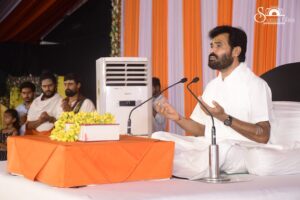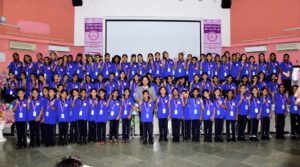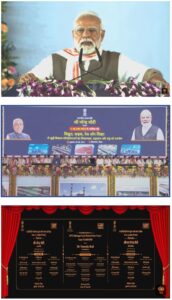🟣 Awareness event draws 100 participants from five villages, challenging menstrual taboos
🟣 Dr Pooja Pandey leads informative session on hygiene, safe practices, and myth-busting
🟣 Free sanitary pads distributed to promote safe and hygienic menstrual management
SARGUJA (UDAIPUR) : In a landmark initiative aimed at enhancing health and awareness among rural communities, the Adani Foundation marked Menstrual Hygiene Day by hosting a special awareness programme in the villages of Salhi and Tara. Organised under the Corporate Social Responsibility (CSR) efforts of Rajasthan Rajya Vidyut Utpadan Nigam Limited (RRVUNL), the event saw enthusiastic participation from nearly 100 women and adolescent girls hailing from Parasa, Salhi, Ghatbarra, Fatehpur, and Tara villages.
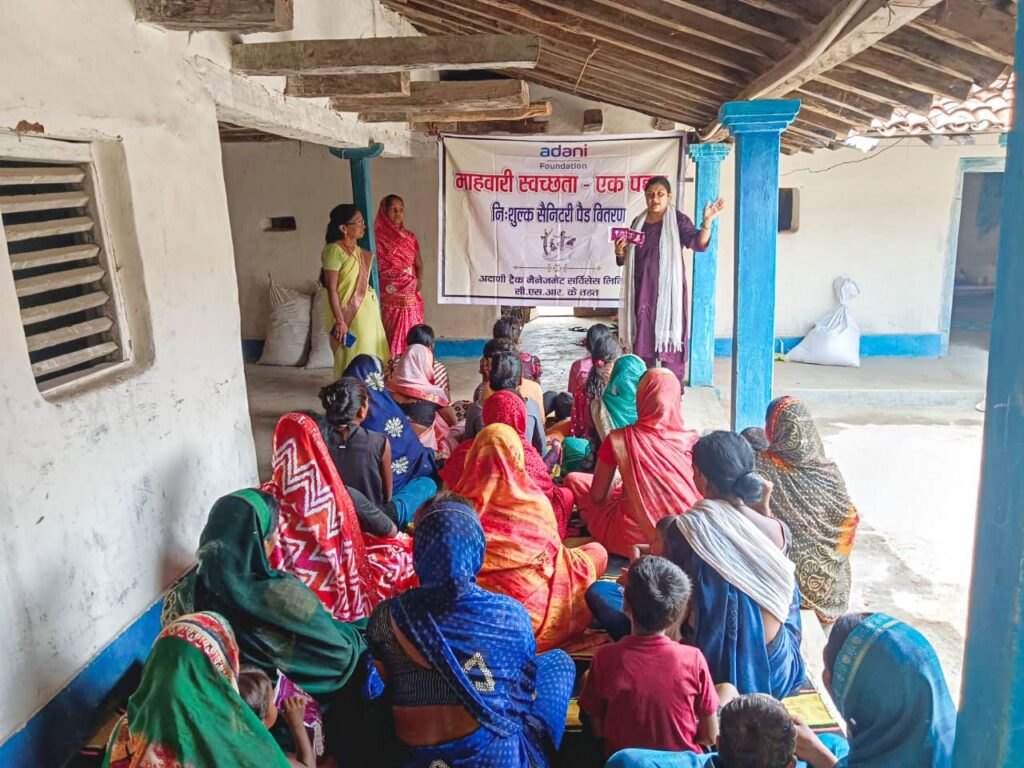
The primary objective of the programme was to raise awareness about menstrual hygiene, challenge long-standing social taboos, and encourage the adoption of safe menstrual practices among rural women and girls. At the heart of the event was an engaging awareness session led by Dr Pooja Pandey, who addressed critical topics including the importance of menstrual hygiene, safe and clean practices, the need to dispel social myths and taboos, and the proper disposal of sanitary products.
Participants found the session both informative and empowering, as it created an open platform for discussing a subject often considered sensitive or stigmatised in rural settings. Breaking barriers of silence, many women and girls voiced their concerns and shared personal experiences, underscoring the growing readiness of these communities to embrace positive change.
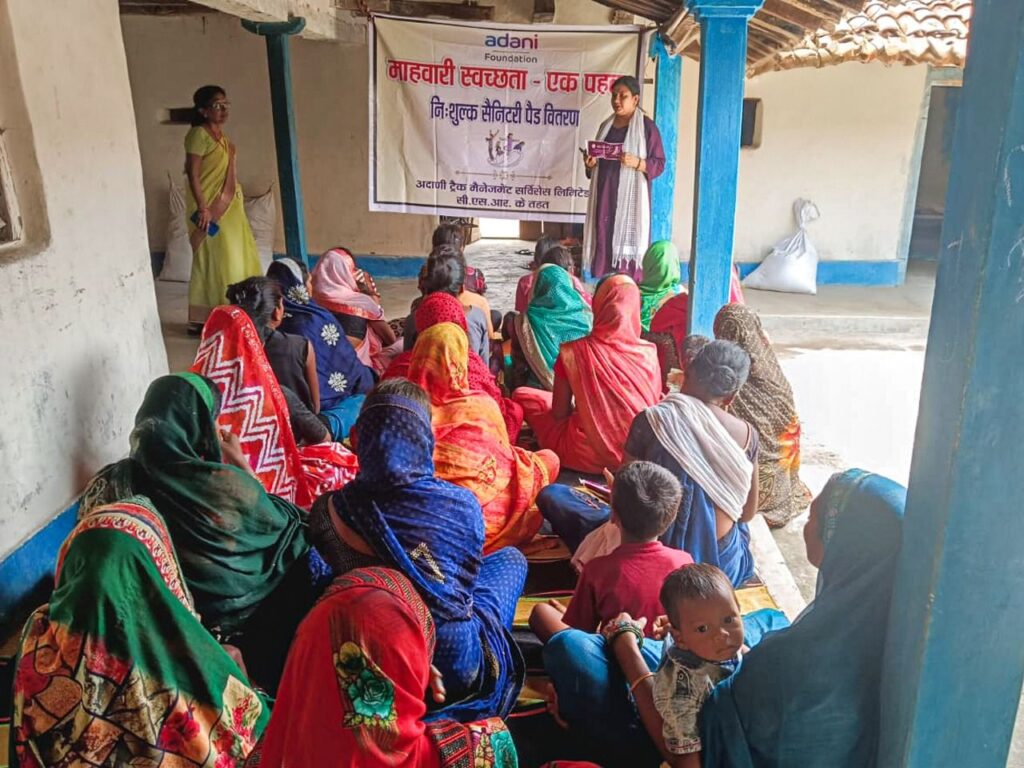
In a practical push towards hygiene, all participants were provided with free sanitary pads, giving them essential access to menstrual products and encouraging the regular use of safe and hygienic alternatives.
This meaningful initiative reflects the Adani Foundation’s broader commitment to normalising conversations around menstruation and fostering safe hygiene practices in rural India. The event not only empowered the direct participants but also inspired the wider community to support menstrual health initiatives, signalling an important shift towards better health, dignity, and empowerment for women and girls.


